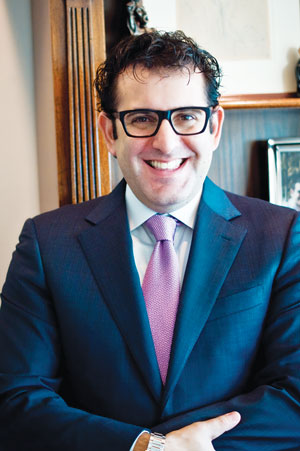Now that an Ontario Superior Court of Justice ruling has put up firmer barriers to questionable class action fee arrangements among plaintiff counsel, the question now is how will firms with such arrangements proceed and what is the potential fallout.

Some lawyers say it could mean more battles for carriage and others say, more frankly, that things could get nasty.
In his late November ruling in
Bancroft-Snell v. Visa Canada Corporation, Superior Court Justice Paul Perell pointed to what he said could possibly be an “illegal” fee-sharing agreement created by MLG when ruling it was unenforceable, and ordered the firm not to be compensated.
Perell said that not only did he find the agreement potentially illegal because it would have had class members in Ontario “pay a ransom fee in order to stay late-arriving rival class actions in Alberta and Saskatchewan” but it did not serve the best interests of the class members and undermines the integrity of the class action regime.
“The court has signalled that it will not approve fees payable to law firms who do not contribute to the prosecution of an action in a meaningful way. In other words, class counsel can no longer pay law firms to go away because they commenced a copycat action in a far-flung province at the eleventh hour,” says Jay Strosberg, partner at Sutts Strosberg LLP. “Unfortunately, litigation may result among law firms who currently have these arrangements in place and ultimately the court will need to determine whether these are
bona fide consortium agreements. This could get ugly.”
If a fee is disallowed, a firm may commence an action and seek the fee that was contractually agreed upon.
“The facts of each case will drive the result,” he adds. “For example, if a law firm is lead counsel in Quebec, and there is a national settlement, there is nothing wrong with allocating fees to that law firm and I suspect that a court will not have a problem with the arrangement among counsel. There may be a problem if a law firm files in multiple jurisdictions, does no work, and then class counsel agrees to pay that law firm to secure their agreement to sign a settlement agreement.
“It will be interesting to see how these situations play out,” Strosberg says.
In the case that involves interchange fees paid by merchants who accepted payment by Visa or MasterCard credit cards, Perell approved settlements, contingency fee agreements, and a class counsel fee of $3,384,571, but he ruled a fee-sharing agreement crafted between MLG and Camp Fiorante Matthews Mogerman was unenforceable and ordered Camp not to pay any sums from the settlement proceeds or from any other source, ever, “on account of the unauthorized and possibly illegal” fee-sharing agreement to MLG.
Actions were launched in five provinces and, in August of 2014, class counsel, led by lawyers from Camp Fioranteand the late-coming Merchant Law Group, attended a judicial dispute resolution conference that resolved an impasse for carriage in Alberta and Saskatchewan, after MLG agreed to stay its rival proposed class actions. Under that agreement, class counsel from Camp Fiorante assumed the responsibility and cost of obtaining stays and they agreed to indemnify MLG for any costs claims in the stayed Alberta and Saskatchewan actions.
University of Windsor associate law professor Jasminka Kalajdzic says because these types of arrangements have been commonplace and now found unenforceable, it will change class litigation in the country.
“The judge [Perell] went even further to make his point by ruling Merchant will not get paid; that really does bind the plaintiff counsel’s hands,” she says. “It means you cannot bargain away any carriage case by offering a portion of the fees.”
Kalajdzic says the ruling could lead to more carriage battles at court and the potential for more co-counsel arrangements.
“But there has to be good will between counsel to do that [co-counsel arrangements],” she says. “I think it will mean more carriage battles for Merchant.”
She adds that the ruling warns that counsel must be forthcoming with their agreements as judges will likely now probe deeper into the class cases and fee arrangements.
“I think with this ruling, the call for greater disclosure and transparency has been heard,” Kalajdzic says.
Koskie Minsky LLP associate Robert Gain says that while he could not speculate on much of the potential results from the ruling, “our firm is prepared to work with co-counsel who are able to add value to the class members and to share fees accordingly.
“We will not include a firm as part of a consortium which does not have sufficient resources to make meaningful [contributions]. It is a privilege to represent a class,” he says.
Gain says firms shouldn’t be permitted by the courts to insert themselves into a case simply as a means to extract a payment to stand down. “We will fight for carriage in those circumstances,” he says.
MLG did not return requests for comment by press time.

 Some lawyers say it could mean more battles for carriage and others say, more frankly, that things could get nasty.
Some lawyers say it could mean more battles for carriage and others say, more frankly, that things could get nasty.